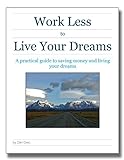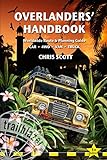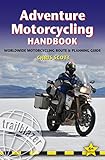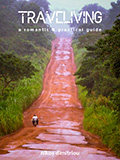Overland Tanzania Travel
Currency to display:
Contents
- 1 Visiting Tanzania
- 2 Entering Tanzania with a Car or Motorbike
- 3 Driving in Tanzania
- 4 Safety and Security Considerations
- 5 Camping in Tanzania
- 6 Navigation
- 7 Special Overland Travel interests
- 8 Vehicle Maintenance
- 9 Buy or sell a car or motorbike in Tanzania
- 10 References
- 11 Helpful External links
Visiting Tanzania[edit]
Give a brief overview of what it's like to visit. How easy is the border, how safe is the country, are there great things to see and do, etc.
Entering Tanzania with a Car or Motorbike[edit]
Correct as of: November 2017
Required Paperwork[edit]
(To check if you need a travel Visa for Tanzania, application instructions and fees see: Tanzania Visa online application at VisaHQ.com)
- TIP; can buy 7 or 30 days. 30 days is $25 USD and can be extended at any city.
- Carnet de Passage not required but useful.
- Certified copy of original Vehicle registration. They will staple the copy to your TIP paper, present this when exiting the country.
- Proof of insurance - can be bought at the border in 1- and 3-month intervals. Best to have COMESA in advance as border prices are always higher, and sometimes sold fake insurance.
Process at border[edit]
Simple process: carry yellow fever card and get temp taken. Go to emigration and get visa, then get car processed. Carry certified copies of registration and present those first. Do not leave your originals at the border
Cost of entry[edit]
50 USD single entry for 3 months, except for Americans have to buy one year multiple entry for 100 USD
Permitted length of stay[edit]
State the permitted length of entry for the vehicle
Extension of stay[edit]
Describe the process to extend the permitted length of entry for the vehicle, if possible.
Storing a vehicle and temporarily leaving the country[edit]
- Sabodo Car Park near Samora Avenue its Multi car park facility. They charge Tshs500 per hour. If your planning to leave the Vehicle for a long period the price is negotiable lets say like $100 a month. Its a safe spot Just make sure you properly hand over incase of anything there will be no excuses.
Exiting with a vehicle[edit]
Describe the paperwork requirements and process at the border to exit.
Driving in Tanzania[edit]
Police will use every excuse to stop people and seek spot fines. Be friendly, be calm and talk/show interest. Speed limits are usually 50 and not 50, unsure the limit when 'not 50'. They will change in a span 100 meters, best to find a bigger car to travel behind and use them as a shield. If stopped ask to see proof of speeding and demand to pay the fine at the bank.
There will also be unofficial roadblocks. Often stating one must pay "council fees", or pay for road repairs. Do not pay these fines and threaten to call police, or go around without stopping when able.
Recommended books for Overlanding in Tanzania[edit]
Travel insurance for Tanzania[edit]
World Nomads offer the most flexible Travel Insurance at the best prices for multi-country / multi-year trips. You can buy, extend and claim online, even after you've left home.
Vehicle insurance requirements[edit]
COMESA or “Yellow card” insurance is required.
Cost of vehicle insurance[edit]
See the prices listed on the COMESA Insurance page.
Where to purchase vehicle insurance[edit]
National Insurance Corporation (T) Limited. They are the authorised dealer for Comesa Insurance in Tanzania. For more info visit there website. Beware of fake cheap insurance especially at the border crossings.
Driving license[edit]
International Driving Permit is accepted across Tanzania.
Driving side of road[edit]
Left.
All vehicles can be driven in Tanzania.
Mandatory items in vehicle[edit]
- Original Vehicle registration or certified copy
- valid insurance sticker on window
- 1kg CO2 fire extinguisher (not the spray canister type)
- 2 safety triangles
- front passengers wearing seat belts
Roads[edit]
General Road quality[edit]
- Most of the main road are tarmac as of 2017 but beware for potholes
- Main roads are decent tarmac; as of October 2013, there are beautiful new tarmac stretches between Mikumi and just south of Iringa, between Bagamoyo and Msata on the Chilenze-Segera road, and most of the Chilenze-Segera road itself
- Main highways are 2 lanes only, with some 'suicide lanes' for overtaking on long steep hills, but not always
- expect many logging trucks (lorries) on the Iringa-Mbeya section
- secondary roads vary from well-graded dirt/laterite in dry seasons to horrifically-potholed swamplands in the rainy season
- 4WD is helpful on secondary roads, but buses and minivans (i.e. Toyota Hiace) are common on these roads as well
notably bad roads listed below
- Selous Game Reserve is closed April-May and super sticky during the rainy season
- Mbeya-Katavi National Park requires a sturdy 4x4
- Saadani NP during the rainy season
- most of western Tanzania along the Lake Tanganyika coast
Road signs[edit]
- well-signposted along new sections of road
- old/beat-up signs on older sections, many missing or too faded to read
- be aware and use common sense especially in big cities stick to main roads.
Toll roads[edit]
- Kigamboni Ferry Tshs 2000 SUV ( All passengers have to get off the Vehicle)
- Kigamboni Bridge Tshs 2000 SUV
Fuel Prices[edit]
- Go to. Ewura.go.tz, go through the menu, click on petroleum, then petroleum cap prices. This will give you a monthly update of fuel prices national wide in Tshs, which you can change to your preferred currency.
Bribery in Tanzania[edit]
Police stops are particularly common on Dar es Salaam-Chilenze road, especially for overspeeding in villages (50 km/hr limit) and paperwork checks. On this stretch of road they ask for 'chai' (tea) regularly, but if you've committed no offense, a polite and simple refusal is usually sufficient. Tanzanians are not confrontational at all. On other main roads I've not experienced many police stops, and even fewer requests for any bribes, in my 5+ years in Tanzania. If you do encounter a cop who insists on getting his chai, several friends carry a few sodas in the car to hand out as needed.
Weekends in Dar es Salaam, there are often police at roadside checkpoints for paperwork and safety. It takes a few minutes but if you've got everything it's rarely a problem.
Checkpoints[edit]
- Military checkpoints non-existent.
- Police checkpoints for fire extinguisher, triangles, insurance sticker, license, and registration common in town and on main roads upcountry.
- Immigration officers (in plainclothes but with government ID's) have been asking more frequently to see passports and visas upcountry. Photocopies suffice, and they've always been returned.
Traveling with pets[edit]
Pets are not allowed in any national park - they might get eaten by the animals!
Safety and Security Considerations[edit]
Vehicle windows should always be closed especially in traffic. Never leave valuables inside the car unless the vehicle is tinted. Make sure Side mirrors, Emblems, Antennas are properly secured with rivets or screws.
Car jackings are rare but beware of petty thieves
On the open road, if you value your life, DON'T drive at night. Long-haul truck/lorry drivers load up on Red Bull and coffee for 16-hour days and fall asleep at the wheel regularly. Drunkards driving fast (140+km/hr) on narrow 2-lane roads kill people regularly.
In cities/towns, it's less of an issue, but drunk drivers are still problematic.
Vehicle parking[edit]
Leave your vehicle in a secured compound, and make sure there are askaris (guards). If you have to park on the street, talk to a property owner and make friends with his askaris. Pay for their service - no more than a $2 dollars for the night.
Special driving considerations[edit]
The bigger the vehicle, the bigger the right-of-way. Dont get frustrated be patience and use Common sense. Road rage is a No No especially if you are new.
Security advisories and information[edit]
- Country Specific Information - U.S. Department of State
- Travel Reports and Warnings - Foreign Affairs and International Trade Canada
- Travel advice by country - Foreign and Commonwealth office (U.K.)
- Travel Advice for Tanzania - Australian Department of Foreign Affairs and Trade
Camping in Tanzania[edit]
Tanzania is not cheap! Pay camping is possible in just about every national park and game reserve. As of November 2013, foreigners pay $30.00 USD per night plus park entry fees, which vary from $20.00 USD to $50.00 USD per person per day. TZ residents pay half that. Citizens pay half that again, or less. Government campsites generally have a water source and a toilet. Depending on how remote the site is, the toilet may be a working flush toilet or a simple long-drop outhouse. A few of the newer/renovated campsites have showers, too. Many sites have a tin- or thatch-roofed 'banda' or hut with a countertop and/or picnic table, but this is far from universal. Concrete or stone fire rings are often present as well. Park rangers generally provide firewood at the official sites, and most are so friendly as to help you with most requests you may have within reason. Some of the more remote sites are no more than a GPS coordinate on a map, a rock cairn, and/or a wooden post in the ground, which translates into a real wilderness experience with lions, leopards, elephants, and other animals likely to stroll through your campsite during the night - Tarangire NP has some of these sites that are truly isolated, many km from the nearest people.
It's also possible to camp at lodges and hotels upcountry, particularly in smaller towns. It's not always an option, but when it is, it's usually the best value for money. It may cost $5.00 USD to $15.00 USD per tent per night (cheaper than camping in the parks and reserves), and you have access to flush toilets, showers, a food prep area (sometimes), and the hotel bar and restaurant. I've personally stayed at private campgrounds catering to overlanders near the Ngorogoro Crater, Serengeti, Lake Manyara, Arusha, Kilimanjaro, Tarangire, Mikumi, Selous, and Ruaha national parks, and I know there are others across Tanzania.
Another option in rural villages are travelers' guesthouses, which generally only cost around $3.00 USD a night. The rooms may be spotless or filthy or anywhere in between, but there's almost always an enclosed and fairly secure parking area where you can sleep in your vehicle, and there will often be a garden where pitching a tent is possible. Access to toilets, water, and locally-prepared food is possible in these guesthouses. Because of the limited number of travelers in rural parts of Tanzania, your business is welcome and usually gets you warm hospitality, hot water, and advice about roads for onward travel.
'Wild' camping outside of designated campsites is prohibited in national parks and reserves in Tanzania. Outside reserves, any wild or roadside camping means you'll be on someone's property. Because the people are so friendly, if you're willing to pay the owner a fee, you're likely to be welcome to stay on their land and have a young man both guard and wash your vehicle.
Camping guide books[edit]
The Tracks4Africa GPS map has many campsites listed, but I'm not aware of any specific guide outside the standard Lonely Planet or Rough Guide.
Drinking water[edit]
Buy bottled or filter your own water everywhere in Tanzania.
Headline text[edit]
[edit]
- Google Maps or Waze App.
Paper maps[edit]
Reise Know-How are amoung the best paper maps. Purchase paper maps before arriving in Tanzania
The "Tourist Map of Tanzania" shows all but the tiniest tracks in Tanzania and is readily available at A Novel Idea, a chain of English-language bookstores on the peninsula in Dar es Salaam.
GPS Maps of Tanzania[edit]
Tracks4Africa routable GPS map, compatible with Garmin devices, includes a lot of detail and has proved to be entirely accurate every time I've used it, even along some overgrown bush tracks in the middle of nowhere. Linked here: http://tracks4africa.co.za/maps/about/gps/east_africa/
GPS co-ordinates for camping, propane, gas, repairs, etc. in Tanzania[edit]
- iOverlander is a website and iPhone application designed by Overlanders, for Overlanders. It contains GPS co-ordinates and reviews for camping, hotels, propane, water, mechanics, borders and much more.
Link to sites that have a list of GPS co-ordinates (or directions) for camping locations (including "wild" campsites), propane filling, gas stations, repair shops, places of interest, etc.
Special Overland Travel interests[edit]
List any special items / places that are popular with Overlanders
Vehicle Maintenance[edit]
Dealers[edit]
4x4s / Trucks
- Toyota Global Dealer Locator
- Land Rover International Dealer Locator
- Mercedes Benz International (select country on bottom right)
- Jeep International site locator
Motorbikes
Local Garages[edit]
Add known good mechanics here.
Buy or sell a car or motorbike in Tanzania[edit]
Buy
You need to obtain a TIN - taxpayer identification number - from the Tanzania Revenue Authority before you can buy a car, but that's not too difficult.
Cars in TZ are expensive due to steep import duties, especially on 4x4's with engines above 2500cc. Average expatriate prices as of November 2013 for the following vehicles:
- Toyota Hilux Surf: $7,000.00 USD - $12,000.00 USD
- Toyota Hilux dual-cab: $13,000.00 USD to $30,000.00 USD depending on year and condition, but in heavy demand locally
- TLC 76/79 trooper/hardtop: $25,000.00 USD to $45,000.00 USD depending on year and condition
- TLC 60-series: $6,000.00 USD to $10,000.00 USD, but most are pretty beat up
- TLC 80-series: $12,000.00 USD to $15,000.00 USD
- TLC 90-series: $14,000.00 USD to $20,000.00 USD (late 90's to early 2000's)
- TLC 100-series: $25,000.00 USD minimum
- TLC 200-series: a lot more than I've ever thought of spending on a vehicle
- Land Rover Defender 110: $12,000.00 USD (late 1980's) - $32,000.00 USD (late models)
- Nissan Patrol LWB: $15,000.00 USD to $35,000.00 USD
Sell
Unknown.
References[edit]
Links to the source of any information - blogs or discussion forums, etc.
Helpful External links[edit]
Add any helpful external links here.
- Tanzania: Visa and Passport requirements | World Travel Guide
- Health Information for Travelers to Tanzania - Center for Disease Control and Prevention
- Tanzania travel guides at wikivoyage
- Tanzania - Wikipedia, the free encyclopedia
- General information about different parks and reserves in Tanzania, and a lot of nice lodges along the way - http://www.africatravelresource.com/tanzania-safari/
- Official accommodation in Tanzania's national parks, from Tanapa the Tanzania National Parks Association - http://www.tanzaniaparks.com/accomodations.html
- This site lists several nice campsites in Tanzania, all within a day or half-day's drive of one another. - http://familyinafrica.wordpress.com/2013/06/05/tip-top-campsites-in-tanzania/








